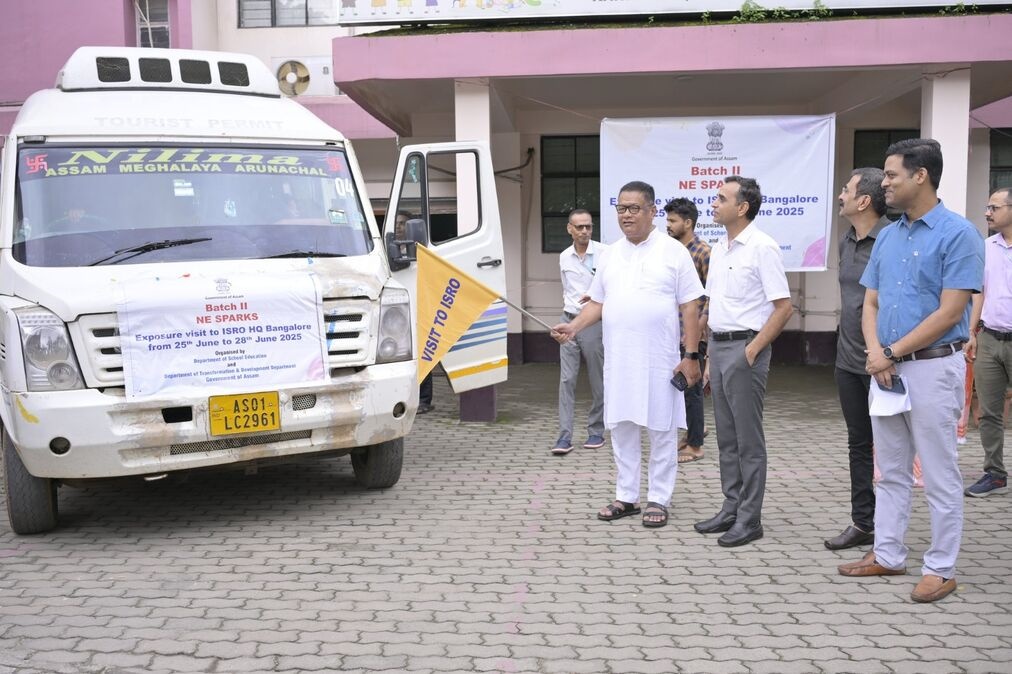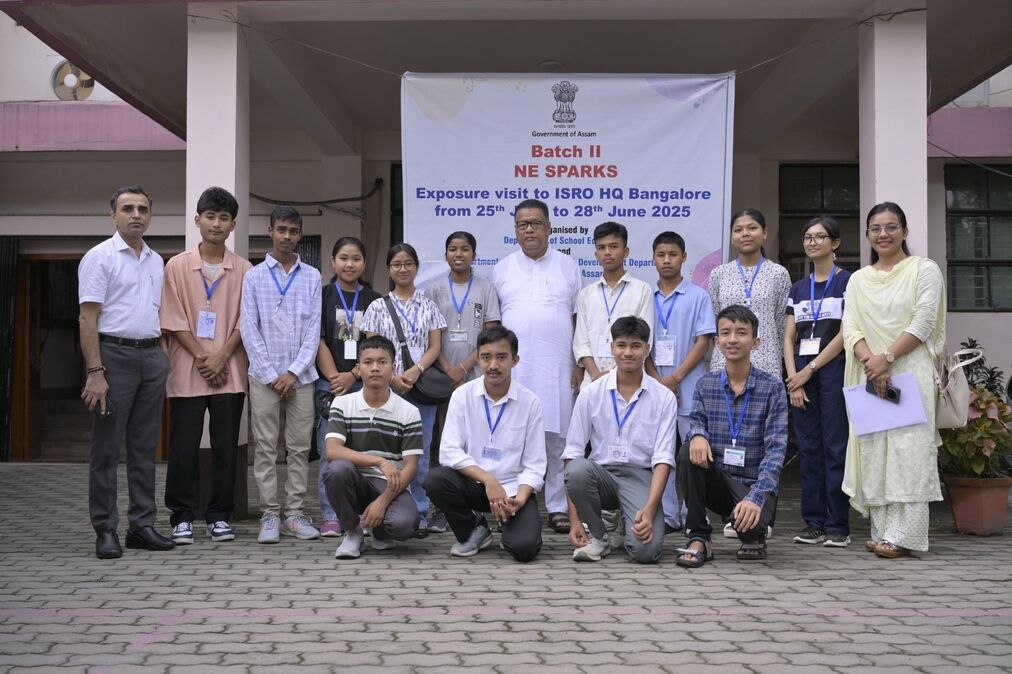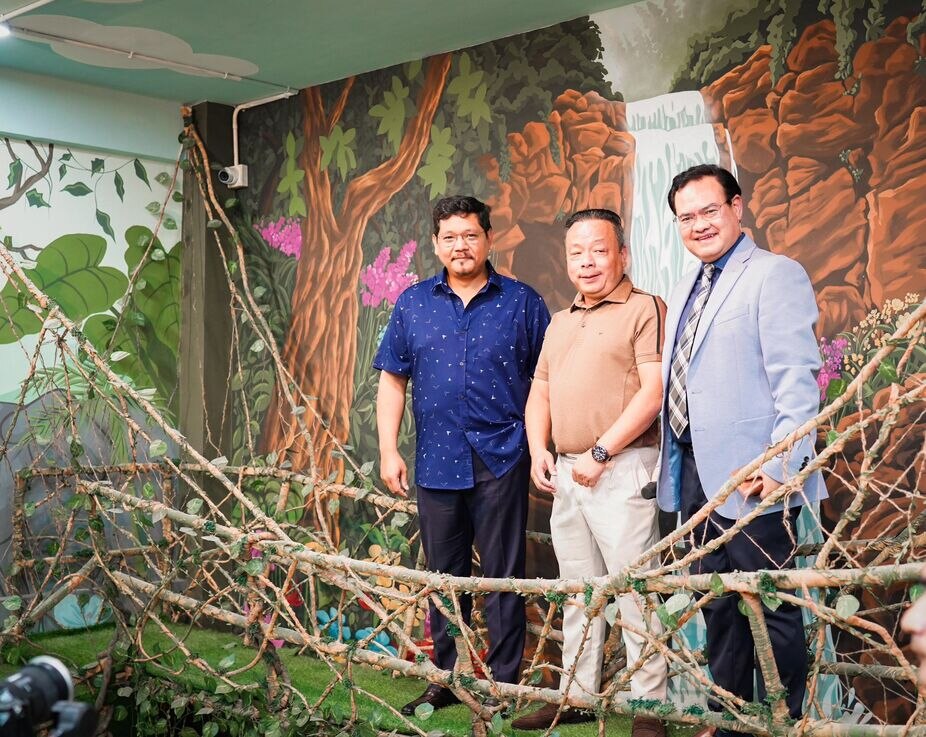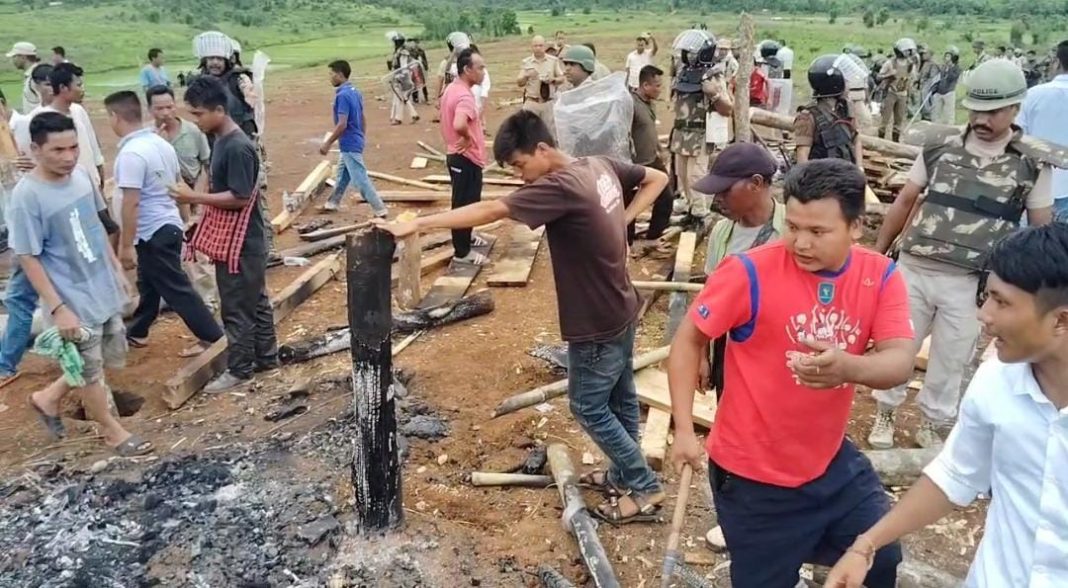Guwahati, June 25: Thirteen of Assam’s brightest science students from five districts embarked on an unforgettable journey to the heart of India’s space program as the second batch of the NE-SPARKS initiative took off on Wednesday.
Flagged off by Education Minister Ranoj Pegu at 8:15 AM from the State Mission Office of Samagra Shiksha Assam (SSA), this batch is en route to the Indian Space Research Organisation (ISRO) headquarters in Bengaluru for a first-hand look at India’s cutting-edge achievements in space science.

The students—selected from Charaideo, Dibrugarh, Jorhat, Kamrup (Metro), and Majuli—are part of a larger mission to ignite scientific curiosity and ambition among the youth of the Northeast. The send-off ceremony was attended by top education officials including Om Prakash (mission director, SSA), Sanjoy Dutta (executive director, SSA), and Khanindra Das (officer on special duty), along with staff members and educators.
The Northeast Student Programme for Awareness, Reach and Knowledge on Space (NE-SPARKS) is a flagship educational outreach project jointly launched by the Department of School Education and the Department of Transformation & Development, Assam. It is being implemented under the guidance of the North Eastern Space Applications Centre (NE-SAC), headquartered near Shillong.
Under this ambitious programme, 800 high-performing students—100 from each of the eight northeastern states—will get the rare chance to visit ISRO facilities in batches. Each group consists of 13 students and one teacher coordinator. The students are selected from government and provincialized schools based on academic merit and a strong interest in science and space technology. Eligible students are in classes IX through XII.

The first group made their ISRO trip in April, and this current tour marks the second leg of a mission that’s equal parts educational and inspirational. During their stay in Bengaluru, the students will tour major ISRO landmarks including the Mission Operations Complex (MOX), Indian Space Science Data Centre (ISSDC), U R Rao Satellite Centre (URSC), ISRO Satellite Integration and Testing Establishment (ISITE), and the Jawaharlal Nehru Planetarium. They’ll also have the unique opportunity to meet and interact with top ISRO scientists, including the Secretary of ISRO.
This initiative, supported by the Ministry for Development of North Eastern Region (DoNER), aims to bridge the knowledge gap between India’s space frontier and students from the Northeast, bringing them closer to the country’s ambitious space missions and possibly inspiring the next generation of space scientists, engineers, and explorers.




